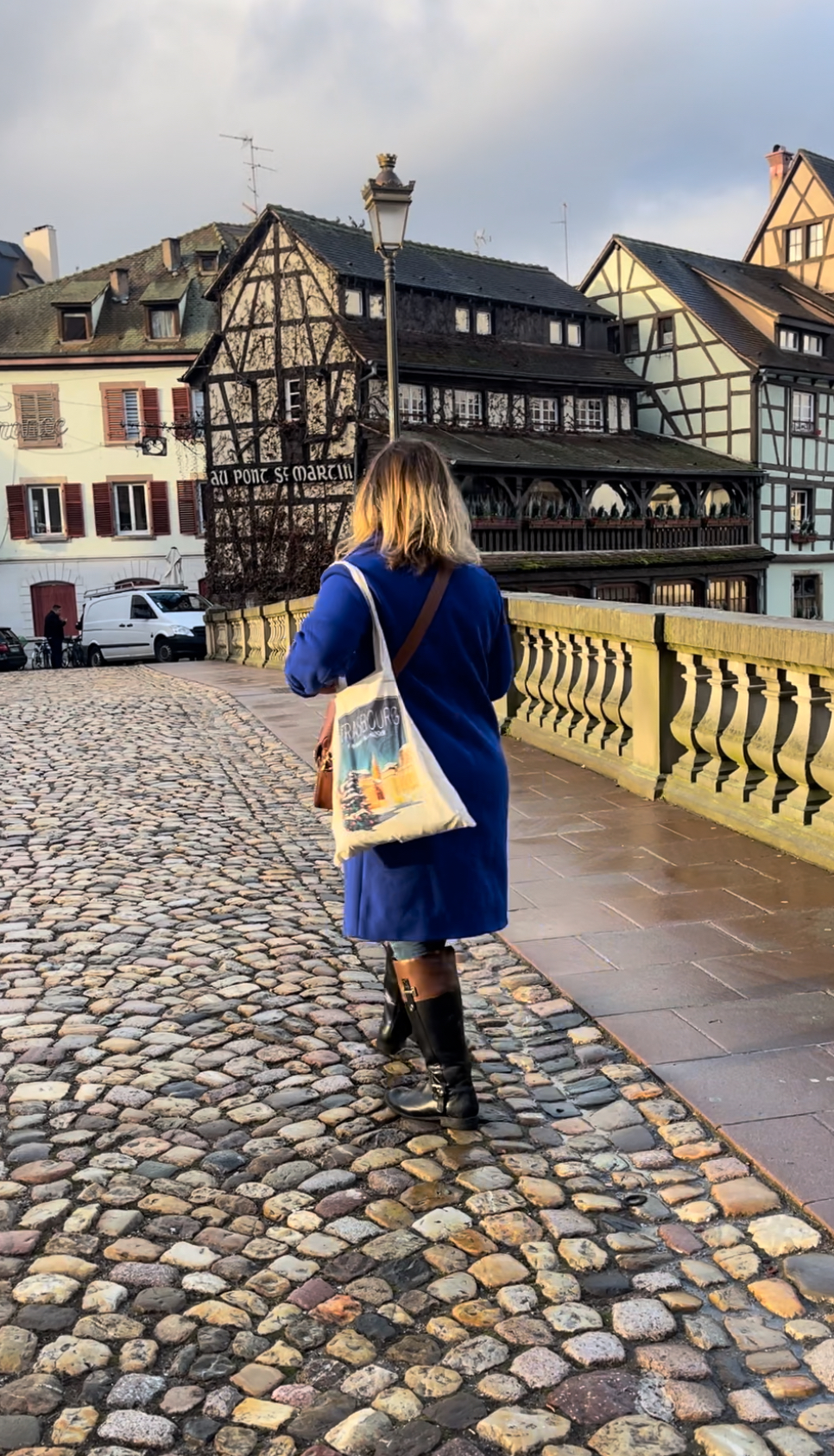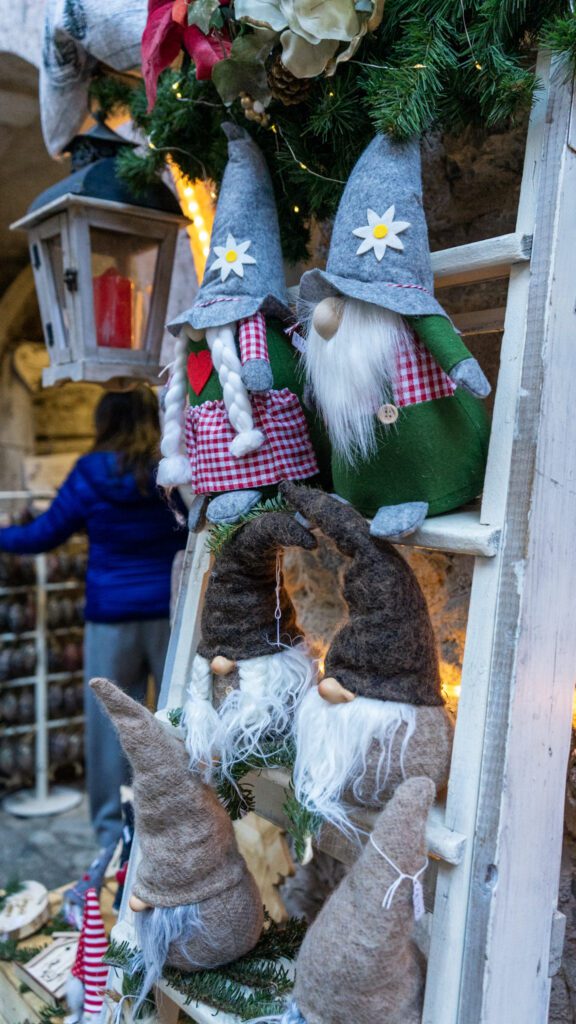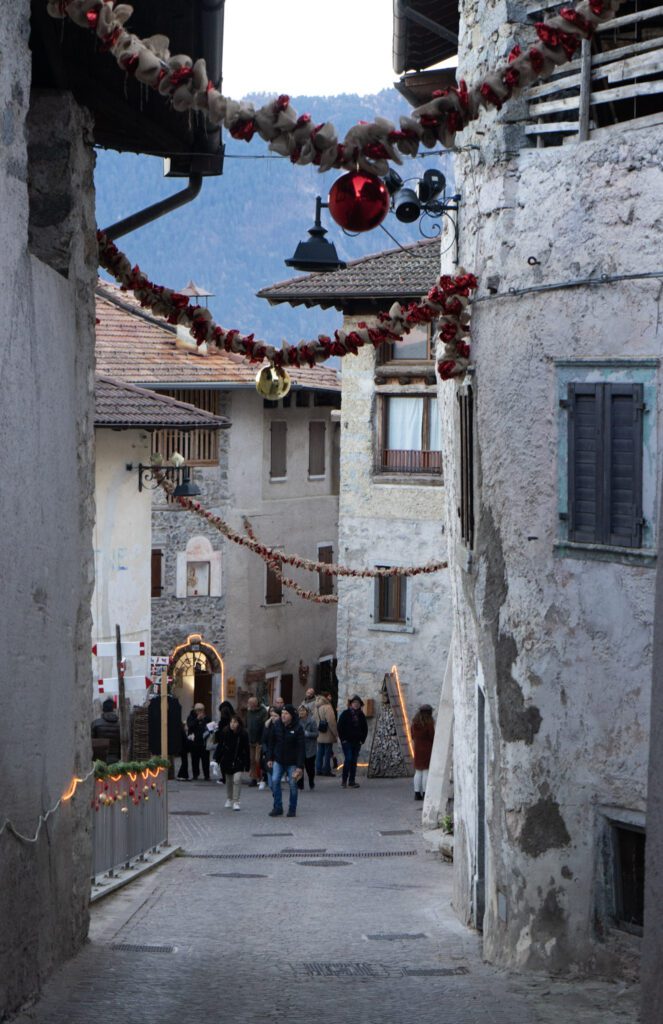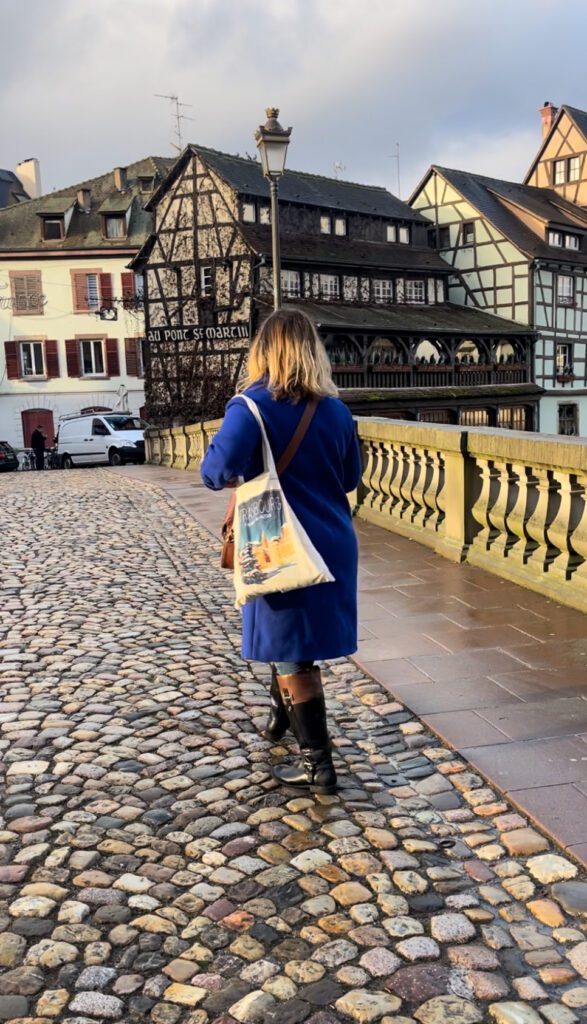How to Enjoy Christmas Markets Sustainably: 5+ Easy Tips

The Christmas season in Europe is synonymous with twinkling lights, festive decorations, and the sweet aroma of mulled wine. For those looking for Sustainable Christmas Market Tips, there are plenty of ways to enjoy the festivities while keeping an eye on your environmental impact.
Christmas Markets become iconic attractions in cities across the continent. These markets offer visitors a magical experience, with handcrafted goods, seasonal treats, and traditional performances.
However, as the popularity of Christmas market travel grows, so do concerns about the environmental impact of tourism. Fortunately, there are ways to enjoy a sustainable holiday experience while exploring the charming Christmas markets of Europe. Here are some sustainable Christmas Market tips to make your holiday more eco-friendly.
In this blog post, I aim to explore how travelers can embrace sustainable Christmas Market travel, making mindful choices that support the environment and local communities.
More than a third of tourists (36%) are willing to cut back on single-use plastics.
Why Sustainable Christmas Market Travel Matters
Tourism, especially mass tourism, has a significant environmental footprint. The transport emissions from flying, the energy use of hotels, and waste generated by seasonal consumption all contribute to the carbon footprint of travel.
However, Christmas markets often draw millions of visitors from across the globe, and with growing awareness of environmental issues, it’s essential to consider the impact of our travel choices, thus why I have created a blog post with Sustainable Christmas Market Tips!
1. Choose Eco-Friendly Air Travel
My first sustainable Christmas Market tip starts with the journey to the Christmas market. This is often the first and most significant impact on your carbon footprint. While flying might be the most convenient option, it’s also the most carbon-intensive.
If you’re traveling within Europe, consider taking the train instead. High-speed trains are an excellent alternative to flying, especially in countries like Germany, France, and Switzerland, where extensive rail networks are efficient.
Trains offer a scenic, comfortable, and low-carbon option for reaching major Christmas markets, with many cities like Cologne, Vienna, Zurich, Milano, and Verona being easily accessible by train.
For those who must fly, consider flying directly to reduce emissions associated with layovers.
Furthermore, many airlines now offer the option to offset your carbon emissions at the point of booking. While not a perfect solution, this helps support climate projects that reduce or remove carbon from the atmosphere.
Ryan Air Net-Zero?
Ryan Air has apparently started promissing net-zero emissions by 2050 that aligns to the Paris Agreement and the aviation industry’s Destination 2050 initiative. Ryanair’s pathway shows that decarbonisation and alignment with EU climate targets is possible.
2. Opt for Green Accommodation
Once you’ve arrived at your destination, selecting accommodation that embraces sustainability is another key aspect of eco-conscious travel.
Many cities now have hotels, hostels, and guesthouses that adopt green practices, such as reducing waste, using renewable energy, or offering organic, locally sourced food.
Look for accommodations that have earned sustainability certifications like EarthCheck, Green Key, or the EU Ecolabel. These certifications indicate that a business adheres to strict environmental standards.
Additionally, consider staying in smaller, locally-owned guesthouses or B&Bs that focus on reducing their environmental impact while providing an authentic, personalized experience.
If you’re traveling to larger cities like Berlin, Vienna, or Prague, it’s also worth exploring eco-friendly vacation rentals. Websites like Airbnb and Booking.com allow users to filter for properties with sustainable practices, such as energy-efficient lighting, waste-reduction strategies, and water conservation measures.
3. Support Local, Sustainable Markets
My third sustainable Christmas Market tip, and one of the most significant aspects of Christmas market culture is the vast array of handmade goods, seasonal treats, and artisanal products on offer. When shopping at Christmas markets, prioritize vendors who emphasize sustainability.
Look for products made from organic, fair-trade materials or locally sourced ingredients. For instance, many markets offer handmade woolen goods, wooden toys, or ceramics crafted using traditional methods.
By buying from local artisans, you’re supporting small-scale businesses and helping to reduce the environmental cost of mass-produced goods.
4. Reduce Waste and Be Mindful of Consumption
Sustainability isn’t just about choosing the right transport or accommodation; it also involves reducing personal consumption and waste. While Christmas markets are often a tempting place to indulge in treats, keep in mind the environmental impact of your purchases.
- Bring your own reusable items: A reusable water bottle, shopping bag, or coffee cup can help reduce the need for single-use plastics often given out at food and drink stalls.
- Avoid excessive packaging: Choose products with minimal or eco-friendly packaging. Remember that many markets offer refillable mugs for hot drinks like mulled wine, which can help cut down on waste.
- Support eco-conscious vendors: Some markets are actively working to reduce their environmental footprint. They do so by offering incentives for customers who bring their own containers or mugs. Look for markets that have implemented recycling programs or have adopted a “zero-waste” policy.
5. Explore Lesser-Known Markets
My fifth sustainable Christmas Market tip, While the famous Christmas markets in cities like Vienna, Munich, and Strasbourg are undoubtedly enchanting, they also attract large numbers of tourists, which can put a strain on local resources and infrastructure.
To reduce the environmental impact of overtourism, consider visiting smaller, lesser-known Christmas markets.
Smaller markets in regions like the Austrian Alps, or towns like Bruges or Tallinn, offer a similarly magical experience but with fewer crowds.
These markets often have a more localized feel and are a great way to explore quieter, less commercialized parts of Europe.
Furthermore, by visiting off-tourist-path destinations, you’re helping to spread the economic benefits of tourism. You avoid overloading popular tourist spots.
Featured Sustainable Market
Rango Christmas Market, Trentino Italy
Nestled in the Trentino region of Italy, the Rango Christmas Market is a shining example of sustainable holiday celebrations.
The market prioritizes local craftsmanship and traditional foods, such as the rustic Panino di Borgo. Vendors embrace eco-friendly practices, offering biodegradable packaging and reusable items. The market’s picturesque setting in a historic village encourages slow travel and cultural appreciation, reducing reliance on modern, high-impact infrastructure.



6. Reduce Food Waste by Sharing and Being Selective
It’s easy to indulge at Christmas markets, with their endless supply of treats and snacks. To reduce food waste, try sharing dishes with friends or opting for smaller portions if available.
Many markets also offer sampler platters, allowing you to taste several foods without committing to a large portion. This approach helps reduce waste while letting you savor a little bit of everything.
EXAMPLE: If you’re attending alone, pace yourself and try spreading out your food purchases over several hours.
If there’s composting or recycling nearby, make use of it for any food scraps or biodegradable packaging.
My husband and I usually split food items. This is a surefire way we can enjoy more and there is less food waste.
7. Use Public Transportation or Carpool to the Market
Choosing public transportation or carpooling can drastically reduce the carbon emissions linked to your trip. Many large markets are located near train stations or bus routes for this reason. Some even offer special transport deals for visitors.
Example: The Christmas Market in Rango, near Garda Italy, will transport you into the town via shuttle bus. You’ll park outside of town and pay 5 euros to be dropped off outside of the market!
Many cities have transport apps, which sometimes show real-time information on the carbon savings of public transit vs. car travel. One such tourism board is that of South Tyrol. Some hotel stays qualify you for the use of a public transport card!
If you’re going with friends, try carpooling to further reduce your collective impact—and enjoy a hassle-free ride together.
8. Bring Your Own Bag for Purchases
Single-use bags, even paper ones, add up quickly. Bringing a sturdy, reusable tote or backpack allows you to carry everything you buy without needing extra bags from vendors.
Look for foldable bags that fit easily into a purse or pocket, so you always have one on hand. Reusable bags come in different sizes, so you can bring one that fits your needs, from a small tote for a few items to a large backpack for multiple purchases.
9. Consider Sustainable Gifts Over Novelty Purchases
It can be tempting to pick up novelty items that may not last beyond the season. Instead, consider choosing gifts or decorations that are functional and made to last. Items like beeswax candles, natural fiber blankets, or hand-thrown pottery are thoughtful, sustainable choices that people can enjoy year after year.
Example: Look for evergreen gifts that can be used well beyond the holiday season, like kitchen tools, cozy winter accessories, or natural body care products.
These kinds of gifts are appreciated by most people and contribute to a less wasteful holiday season.
Conclusion
Sustainable Christmas market travel is not only a way to enjoy the festive atmosphere of European markets but also an opportunity to make conscious, environmentally friendly choices that help protect the planet.
By opting for low-carbon transportation, choosing eco-conscious accommodation, supporting local artisans, and minimizing waste, travelers can have an enjoyable holiday experience while reducing their environmental impact.
As Christmas markets continue to be a cherished tradition, embracing sustainability will ensure that future generations can enjoy the same magical experience, while also preserving the culture and natural beauty of Europe for years to come.
YOU FORGOT YOUR REUSABLE BAG?
No worries, you can often find a Vendor selling cloth bags!

Feel free to tell me all about how you are becoming a more sustainable traveler down below or let’s be friends on Instagram!
